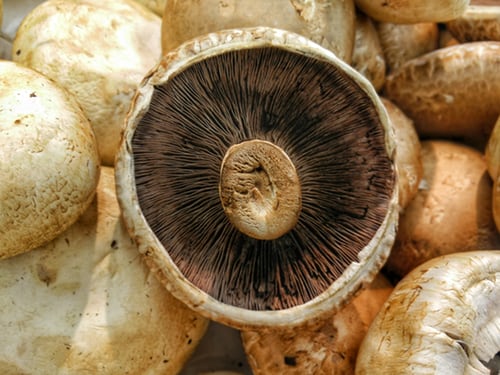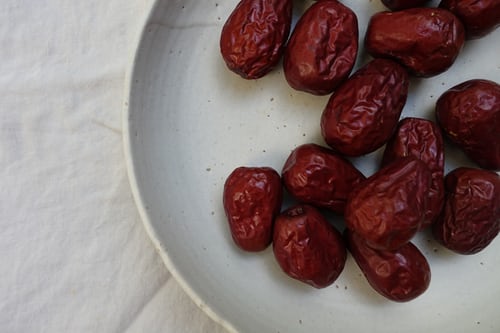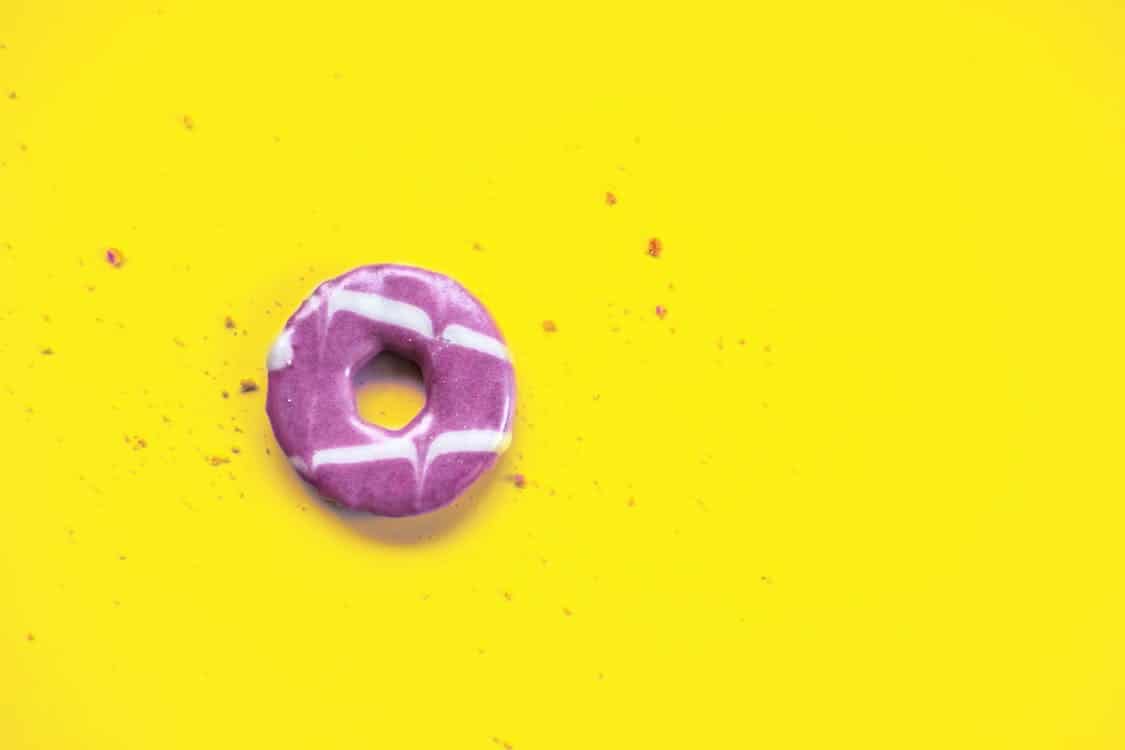Ever heard of the trace mineral chromium?
Know what it does and why you need it?
In a few short moments you’ll understand what the trace element chromium does in your body and why you need to be eating it and I can guarantee when you do, you’ll probably wonder why you haven’t heard more about it before.
As well as understanding why you need chromium and signs and symptoms indicating you may not be getting enough, after reading this you’ll also know your daily chromium needs (hint: it’s surprisingly small!).
Plus, some examples of good go to food sources for this incredibly underappreciated mineral.
All to ensure you are getting enough and supporting your optimal health.
Chromium: Why Do You Need It?

In a the most simplified sense you need chromium to help your body release the energy from the macronutrients (carbs, fats and protein) you eat.
As far as the roles of micronutrient go this is a pretty crucial one because if your body isn’t metabolising the macronutrients as well as it could be the energy within them isn’t going to be available for use by your body.
Which would be a huge shame and have a major impact on your health and happiness given that energy is the currency of life.
Energy is necessary to carry out every single one of the functions you first and foremost need your body to do in order to stay alive but also in allowing for all those amazing extras that take life to the next level.
This means that right through from your heartbeat and saliva production to kicking the football with your niece, coming up with a winning idea at work or romping with your beloved chromium plays a role.
How cool is that!?
I have always loved taking a deeper look into exactly how we continue to function and when you go all the way down to the level of the vitamins and minerals we need it gets pretty weird and wonderful and you gain a whole new appreciation for all your body does for you that’s for sure.
So, given that chromium is such a crucial to the necessities as well as the extras of life do you think it might be worth knowing how much you need and what foods to find it in?
Adequate Daily Intake for Chromium
The adequate intake for men 19 years and older is 35µg/day and for women 19 years and older it is 25µg/day1 (and as with many other nutrients your needs go up if you’re pregnant).
Good Food Sources of Chromium (with amount in µg per 100g food2)

Mussels (128)
Brazil nuts (100)
Oysters (57)
Dates (29)
Pear (27)
Wholemeal flour (21)
Tomato (20)
Mushroom (17)
Broccoli (16)
Barley (13)
Hazelnut (12)
Pork chop (12)
Maize (9)
Egg yolk (6)
Beef (3)
Something I found interesting reading the data from different studies was that they indicated only around 0.4-2.5% of the chromium you eat is actually absorbed3.
Which, while this may not sound like a lot, as you can see from comparing the adequate intake (35µg and 25µg per day for men and women respectively) to the amounts found in common foods the small absorptive capacity of chromium is actually of no concern (and I would happily guess something our bodies have adapted to doing and it’s all part of the greater plan and ensuring we don’t OD).
In any case it’s not uncommon amongst vitamins and minerals that the amount your body absorbs is less (often far less) than what is actually contained within the food you’ve eaten.
Fun fact: vitamin C appears to increase your absorption of chromium4-6 (just as it does non-haem iron).
Therefore, if you’re concerned that chromium may be one of the minerals you’re not getting enough of then a good place to start may be including a vitamin C rich food/s in the same meal (i.e. any fresh fruit or vegetables) as your chromium source.
An even better place to start would be making a time to visit a Dietitian because if you have concerns about your chromium intake there’s definitely some better areas we would start addressing than upping your vitamin C intake.
What Happens If You Don’t Get Enough?

Reports of chromium deficiency are very rare, but it has been hypothesised that low chromium status contributes to impaired glucose tolerance and even to type II diabetes.
This connection between low chromium status problems of metabolism and type II diabetes links back to the role that chromium plays in assisting insulin to move glucose (sugar from the carbohydrate foods you eat) into your cells so that it can be stored or used by these cells as fuel.
Therefore, if your chromium levels are low, glucose (sugar) may not be able to enter your cells as readily as what is usual or ideal.
When our blood sugar levels are continuously high this can, over time, contribute to all sorts of problems. Most of which stem from the damage this higher than normal glucose in our blood does to our blood vessels. Which can largely be divided into two categories. 1. macrovascular (coronary artery disease and stroke) and 2. microvascular (for example vision problems and blindness, kidney disease and peripheral nerve damage).
Evidently not very desirable path of potential complications and one definitely worth doing what you can to avoid going down…
Should I Just Take A Supplement?

It certainly appears to be one of those cases where yes, chromium is a wonderfully important (actually crucial) mineral to get enough of, but as is so often true in nutrition more is not always better.
Your body needs what it needs and exceeding this can have detrimental effects.
Large doses of chromium in supplement form may cause stomach problems, low blood sugar, and kidney or liver damage.
There is also some concern that taking high doses of chromium in the form of supplements may have adverse effects on DNA and that their use as nutritional supplements should be reconsideres7 and currently there is no evidence to support the use of chromium supplements for the general population8.
So, in a word the answer to the question “should I just take a supplement?” is no.
You shouldn’t just take a supplement.
The Important Bits

Chromium is found in a wide variety of foods (for example nuts, broccoli, eggs and oysters) which means that the best way you can get your chromium needs met is through eating a varied diet.
If you’ve been reading my stuff for a while there should be no surprises, there!
Remember your overall diet is far more important in preventing disease and fostering optimal health than focusing on taking one supplement (or a bunch) here and there.
Yes, vitamins and minerals are great for us (not only great but also necessary to our survival) but studies repeatedly show that taking isolated nutrients or food components does not have the same beneficial effect as getting those nutrients from whole foods.
Due to all the other nutrients and compounds in foods beyond the one of interest (in this case chromium) it is healthier and definitely safer to get your nutrient needs met through the foods you eat versus supplements.
While it’s hard to avoid the messages telling us we shouldn’t eat this or that the truth is optimal nutrition is more about what you can add in versus what you can take out.
Consider looking at food as an opportunity to fuel your body and literally give yourself the best chance at being the best version of you.
As always, I highly encourage you to make a time for a consult with an expert in human nutrition (otherwise known as a Dietitian) because diet undeniably plays a huge role in our health and happiness outcomes and this goes far beyond disease prevention or management.
What you eat affects your daily thoughts, feelings and therefore actions, enjoyment and success in life.
With My Whole Heart I Hope You Found This Information Useful & Inspiring.

Become Great. Live Great.
Bonnie.
Reference
- Ministry of Health. Australian and New Zealand Nutrient Reference Values. Chromium. Accessed 25/01/2020. Page updated 09/04/2014. Available online: https://www.nrv.gov.au/nutrients/chromium
- The European Food Information Council. EUFIC 2020. Chromium in the diet. Accessed 25/01/2010. Available online: https://www.eufic.org/en/whats-in-food/article/chromium-in-the-diet.
- Clydesdale FM. Mineral interactions in foods. In :Bodwell CE, Erdman JW, eds. Nutrition interactions. New York: Marcel Dekker, 1998. Pp 73-113.
- Davis Ml, Seaborn CD, Stoecker BJ. Effects of over-the-counter drugs on 51chromium retention and urinary excretion in rats. Nutr Res 1995;15:201-10.
- Offenbacher EG. Promotion of chromium absorption by ascorbic acid. Trace Elem Elect 1994;11:178-81.
- Seaborn CD, Stoecker BJ. Effects of antacid or ascorbic acid on tissue accumulation and urinary excretion of 51chromium. Nutr Res 1990;10:1401-7.
- Levina A and Lay PA. (2008) Chemical properties and toxicity of chromium (III) nutritional supplements. Chemical Research in Toxicology 21:563-571.
- European Food Safety Authority (EFSA). (2010) Scientific Opinion on the substantiation of health claims related to chromium. EFSA Journal 2010;8(10):1732.



